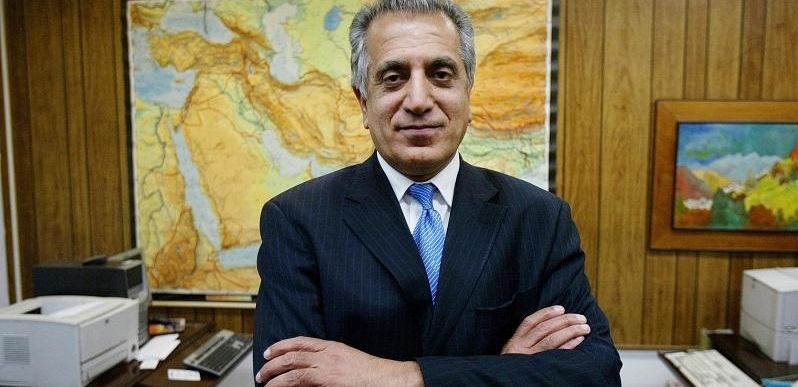Alwaght- Afghanistan, a country with a specific geopolitics, has always been a region calling the attention of the world interventionist powers. The country links Central Asia to West Asia and once a foreign power dominates it, the country will be the superior power in the two regions.
This advantage in 2001 motivated the US to invade Afghanistan under the ruse of fighting terrorism and mainly al-Qaeda terrorist group. The occupation of the country is now in its 17th year and Americans continue their presence under the same excuses. Trump, like his predecessors, plans to remain in Afghanistan and even increase his forces there. But the increasing instability and insecurity across the war-torn nation are raising challenges to the foreign forces’ presence justification. Now, many Afghan politicians and people, and even the neighboring countries, find the Western military amassment in Afghanistan unjustified.
In August 2017, the US President Donald Trump unveiled his Afghanistan strategy of intensifying the fight against terrorism and the Taliban. Following his announcement, however, the situation worsened, militants clashed with the government forces and seized control of parts of eastern and southern Afghanistan. As a result, the White House in a U-turn has sent the experienced politician Zalmay Khalilzad to Afghanistan to make an atmosphere fitting negotiations and to promote the so-called peace. However, the presence of Trump’s special envoy in Afghanistan has drawn some controversy.
Khalilzad behind the reliance of post-Taliban Afghanistan on the West
In August this year, the US Secretary of State Mike Pompeo picked Khalilzad as special envoy to Afghanistan peace.
Khalilzad, 67, is an American who was born in Mazar-i-Sharif in northern Afghanistan. Under President George W. Bush, he occupied a set of posts: Ambassador to Iraq, the UN, and Afghanistan. He is also the first US special envoy to Afghanistan and played a crucial role in the international conference on Afghanistan in Bonn, Germany, in 2001, where a new page of the country’s history began.
Khalilzad is a virtuoso in the US Afghan policy. But his performance has serious critics in Afghanistan. Many accuse him of setting up Afghanistan’s dependence on the West after Taliban collapse.
He argues that Afghanistan needs to get loans from foreign countries to develop itself. 17 years into Taliban’s collapse and pouring foreign funds to the Central Asian nation, there has been no economic growth and improvement of the security in the country and the government is heavily indebted abroad and extremely weak at home, something questioning Khalilzad’s claims of the foreign aids benefiting Afghanistan.
Trump ignores Afghan demands
Trump’s choice for the post of the special envoy to Afghanistan faced opposition since the first moment. Some voices in Afghanistan questioned Khalilzad’s first Afghanistan post performance. The opponents of his appointment sent a letter to Trump calling for him to pick a different figure. They accused Khalilzad of sectarianism, arguing that he, with Pashtun roots, will fuel the ethno-sectarian gaps in Afghanistan. His critics launched a signature collection campaign in a bid to prevent him from the post. But, to the disappointment of Afghanistan home voices, Trump ignored their demands by Khalilzad appointment.
He recently visited Qatar, Pakistan, and Saudi Arabia as part of efforts to pave the way for a peace deal between Kabul and the Taliban. But many of his critics are pessimistic about his role-playing in the peace process.
Abdul Latif Pedram, a member of Afghanistan parliament, has asserted that all of Afghanistan peace affairs should not be entrusted to Khalilzad and that the parliament should work more seriously on the peace. Pedram raised the possibility of forming an interim government and delaying the April 2019 presidential election as the peace talks with the militant group are underway.
Khalilzad appointment was given publicity only after some sources talked about negotiations between the US and the Taliban in Qatar. A month before, the New York Times reported that Trump had authorized the direct dialogue of Washington with the Taliban representatives.
Concerns about rising artificial sectarian tensions
As an Afghan-born American, Khalilzad is not a neutral American but a biased Afghan in the middle of Afghanistan’s sectarian and political disputes. Many Afghanistan affairs experts argue that his appointment as a US special envoy will not lead to a fair and sustainable solution to the decades-long Afghanistan crisis. The critics support their argument by suggesting that past experiences show he adopted a sectarian and not nationalist approach in dealing with Afghanistan affairs.
Reports say that the US envoy has restricted his talks over the past few months to the heads of Pashtun tribes, mainly in southern Afghanistan, where President Ashraf Ghani has roots.
So, since the initial steps, Khalilzad has adopted a sectarian approach to the peace process, with the other ethnic groups, like the Hazaraz, having no place in his pro-peace plan. This bias has given rise to concerns about the exacerbation of the already-tough tensions and disputes.
The peace efforts by the US come while in last summer the American president strongly rejected any peace with the Taliban and instead highlighted a need for sending further troops to Afghanistan to defeat the militants there.
A year after Trump’s troops increase decision, the Taliban has not been defeated. The Chairman of the Joint Chiefs of Staff General Joseph Dunford last week maintained that the Taliban is “not losing” and there is “no military solution” to end the Afghanistan crisis.
So, the US inclination to peace with the Taliban, which is a mission Khalilzad is tasked with, indicates the early failure of Trump’s militaristic strategy. On the other side, Khalilzad with his sectarianism focuses on Pashtuns and drives out of the peace process other key ethnic groups such as the Hazaras and Uzbeks. Marginalizing some ethnic group not only will lead to no peace but also will fuel ethno-sectarian conflict in already-tense Afghanistan situation. The protests to Khalilzad performance may be heralding such a conflict.



























